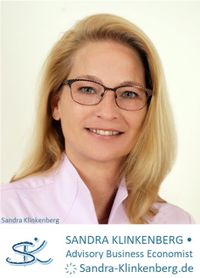Profession
Advisory Business Economist a liberal or free-profession according to the catalogue of liberal professions in economic and business advisory • Person •
liberal or free PROFESSION !
Liberal professions can be employed, self-employed, entrepreneurial or even engaged in a wide variety of temporary contractual arrangements, such as interim manager or traditional advisory activities in the sense of ‘helping people to help themselves’ and as knowledge-carriers, -mediators and -conveyors, or simply committed to realising the specific services of this liberal profession.
Definition of liberal or free-Professionals
There are different definitions for liberal or free-Professionals.
In summary one can say:
- liberal/free-Professionals have special professional knowledge. However, they do not necessarily have to have acquired this knowledge through university studies. This can sometimes be done through self-study or through professional activity. But it does not matter from where you got them: The knowledge must be scientifically sound and correspond to the level of a university degree.
- liberal or free-Professionals use their knowledge to provide special services of high value, e.g. for the community (e.g. when they cure the sick).
- liberal/free-Professionals have full professional freedom of choice in this work and are responsible for the quality of their performance. Incidentally, their income or fees are often based on the scale of fees for the professional group to which they belong.
The catalogue professions include = liberal/FREE PROFESSION
- the medical professions - doctors, dentists, veterinarians, alternative practitioners, dentists, physiotherapists
- the legal, tax and business advisory professions - lawyers, patent attorneys, notaries public, auditors, tax consultants, tax agents, advisory economists and business economists*, sworn auditors and accountants
- the scientific/technical professions - surveyors, engineers, commercial chemists, architects, pilots
- the information and language professions - journalists, photojournalists, interpreters, translator
In addition, there are also the four independently practised professions mentioned in the Partnership Company Act (PartGG): diploma psychologist, massage therapist, midwife, principal professional expert
* Advisory Business Economists cover all areas of business administration and management and have proven this in practice extensively.
Professional rights and quality assurance
The identity of the liberal or free-professions as a whole is based on the obligation to always provide services of high quality - also and especially in highly sensitive areas of the individual and society as a whole. By their very nature, professional services are tailored to the individual case and are therefore not comparable with standardised industrial processes and goods, which are usually characterised by a high degree of substitutability and the possibility of mass production. Consequently, the legal framework for access to and practice of the professions in the liberal / free- professions therefore also differs from other sectors of the economy: self-administration by chambers and associations of the liberal professions, professional rights and, in particular, the principles currently under discussion, such as debt capital regulations, fee and charges regulations and specifications for the legal form of liberal professions are of systemic importance. High quality is the brand essence of professional services because consumers, patients, clients, clients and customers expect it from the liberal professions.
Assignments: advisory, sparring, support and guidance in restructuring, reorganisation as well as holistic sustainable economic, business, corporate and organisational development -also officer functions such as CSR, ISMS, TQM or BCMS officers, advisory and project coaching assignments; interim mandates
- independent of sector & division -
» Strategy, organisation, leadership, integration, activation and improvement
Level: Director, managing director or board member in the area of corporate development and corporate management; supervisory board -- (CRO, CDO, CIO, COO, CEO - CxO) --
Location: national, Europe or worldwide; German contract
